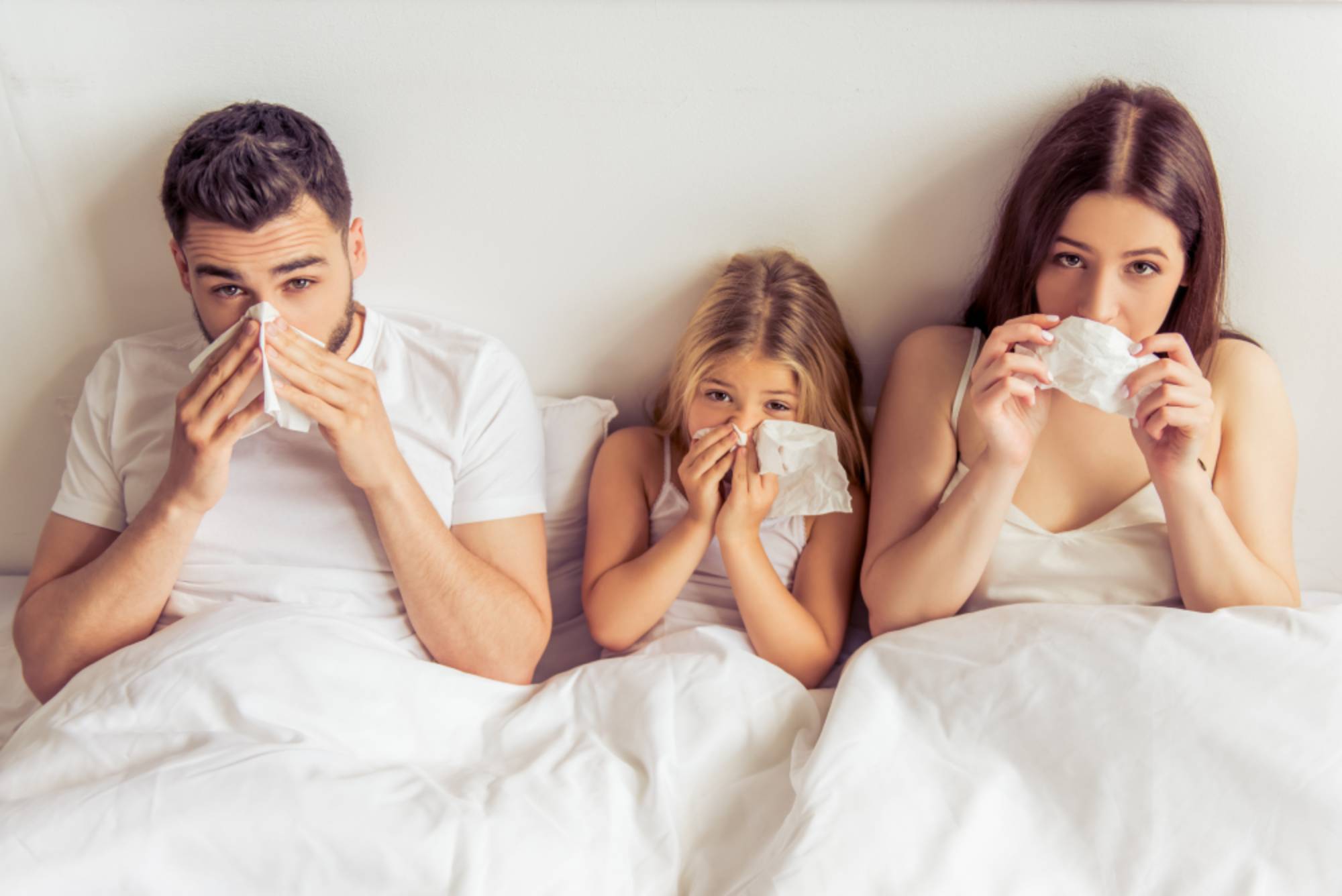
According to the Asthma and Allergy Foundation of America (AAFA), effective allergy and asthma control starts indoors. By turning your living space into a “clean-air sanctuary,” you can protect vulnerable residents from the high concentrations of pollen, mold, dander, and other triggers that lie just outside. While your HVAC air filter can certainly help, you may need additional support to protect and improve the indoor air quality (IAQ) in your Bellevue, NE home. The following are five easy ways to give your IAQ a boost this allergy season.
1. Establish the Right Filter Change Schedule
Many standard HVAC air filters are effective for clearing out common allergens like dust, dirt, and lint. However, air filters only work when they’re clean. Most HVAC equipment manufacturers recommend checking these components monthly and changing them as needed. For the typical household, this winds up being about once every 30 to 90 days. However, in homes with asthma and allergy sufferers, it’s often best to inspect standard air filters every two to four weeks and change them every one to two months.
Upgrade Your HVAC Air Filters
All HVAC air filters come with maximum efficiency reporting value (MERV) ratings. The pre-installed, standard filters that HVAC equipment manufacturers use typically have MERV ratings of just 6 to 8. Filters with ratings of 10 to 12 have tighter mesh and greater surface areas. According to the United States Environmental Protection Agency (EPA), some filters with MERV ratings of 12 can pick up particulates as small as 0.3 microns.
However, upgraded air filters decrease airflow throughout HVAC systems. Thus, choosing a filter rating that’s too high will hinder your HVAC system’s performance and could cause problems like overheating and shutdown. You can work with our technicians to find the perfect filter for meeting your IAQ goals while ensuring optimum airflow.
2. Have Your HVAC Air Ducts Inspected and Professionally Cleaned
Your ductwork could be a significant source of indoor contamination. If your ducting is old, cracked, or has loose connections, it could be drawing in contaminants from drafty, low-lying areas like your basement or crawlspaces. Annual duct inspection and maintenance services will give us the chance to make the necessary repairs.
As per the EPA, homeowners should also have these features cleaned on an as-needed basis. In fact, the National Air Duct Cleaners Association (NADCA) suggests scheduling duct cleaning about once every 24 to 36 months for optimum IAQ benefits.
Replace Aging Air Ducts
HVAC air ducts last between 10 and 15 years. Pairing your heating and cooling equipment with high-quality, high-functioning ducting could make a huge difference in your IAQ throughout the allergy season.
3. Don’t Forget the “V” in “HVAC”
The “V” in “HVAC” stands for “ventilation.” In a standard HVAC system, air exchange occurs as stagnant indoor air moves outside and fresh outdoor air flows in. Surprisingly, the EPA asserts that indoor air is often two to five times more contaminated than outdoor air. While air exchange normally happens through cracks and gaps in building materials, sealing these points off is key for creating a tight home envelope and limiting energy waste.
If you have a relatively airtight living environment, you can improve air exchange in your home by cleaning existing mechanical vents like bathroom exhaust fans and your range hood vent. However, you should also consider having additional mechanical ventilation stalled, especially if gaseous chemical contaminants like volatile organic compounds (VOCs) are an ongoing IAQ concern.
4. Check for Pests and Establish an Ongoing Pest Control Plan
Pest-infested HVAC ducting can fill your home with multiple allergy and asthma triggers. Pests tend to leave behind lots of detritus like:
- Exoskeletons and wings
- Food
- Fur
- Feces
- Carcasses
While pest treatment addresses existing infestations and live animals and insects, ongoing pest management proactively prevents insects and animals from entering the building. It includes covering accessible sources of water and food, sealing up possible points of ingress, and making your property less accommodating in other ways.
5. Install Integrated HVAC Accessories to Target Specific IAQ Concerns
The most important step in improving your IAQ for allergy season is having an indoor air quality assessment performed. These evaluations measure indoor humidity, identify airborne contaminants, and determine the concentrations of individual allergens, gaseous chemicals, and pathogens. With this data, the technicians at Apollo Heating & Air Conditioning can find the perfect integrated HVAC accessories for addressing your household’s specific IAQ concerns.
Installed inside of HVAC air ducts or attached to them, options like whole-house dehumidifiers, UV sanitizing lights, air purifiers, and air scrubbers can keep your IAQ protected. This is the case even when outdoor pollen counts are at an all-time high.
We’ve been keeping residents of Bellevue, NE safe and comfortable since 1972. We offer outstanding heating, air conditioning, and duct cleaning services. We also provide smart thermostats, preventative maintenance plans, and cutting-edge indoor air quality improvements. To schedule an appointment, contact Apollo Heating & Air Conditioning today.
